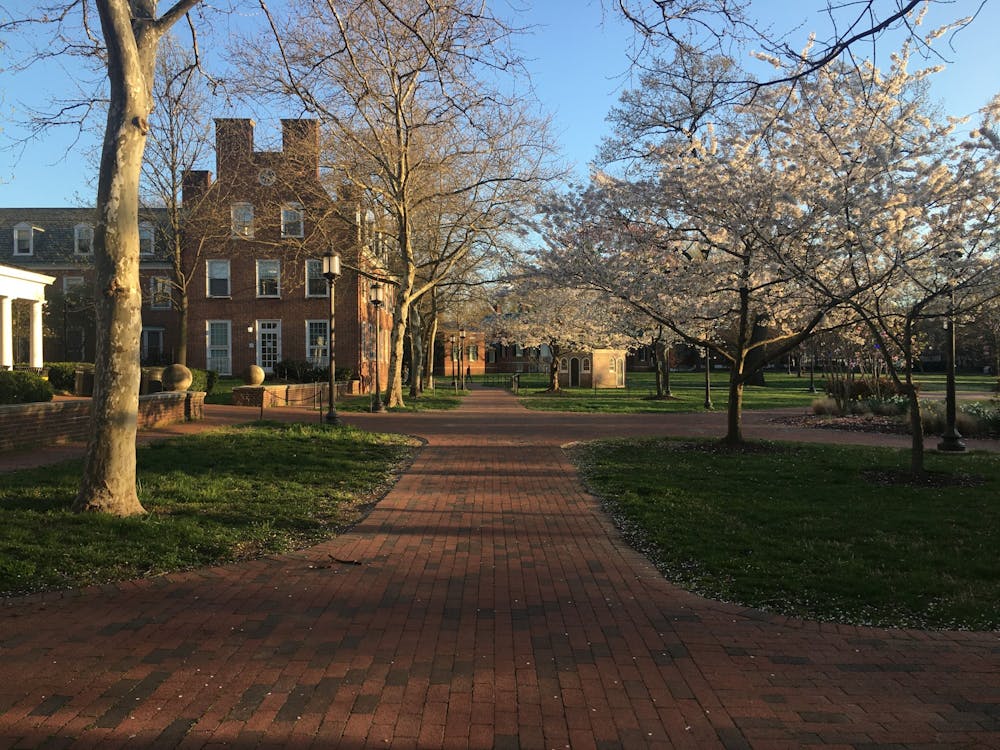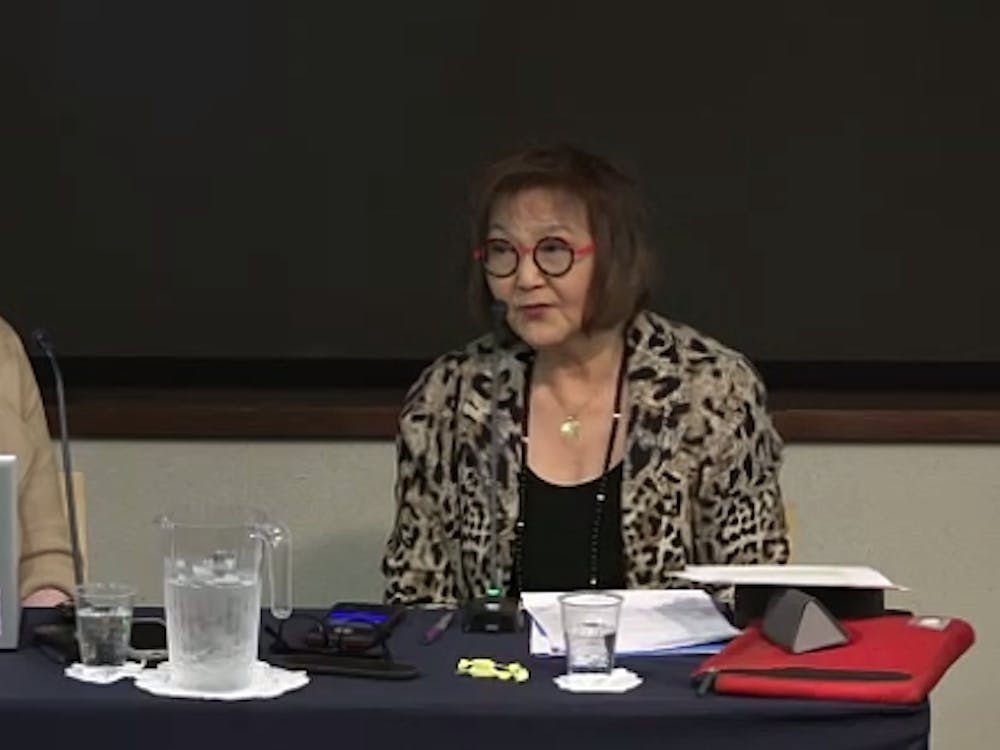It’s hard to believe that I’m writing this article.
As everyone reading this knows, the world turned upside down over the last few months. Tuesday, March 10, was the last semi-normal day. In the morning, it was class as normal. By the evening, the campus was in disarray as students grappled with the fact that Hopkins would operate virtually until at least April 12.
For the rest of that week, I was optimistic. Hopkins is one of the institutions leading the way in coronavirus (COVID-19) research. When the University gave us April 12 as a potential return date, I assumed that I would be returning to campus on April 11. Business as usual would proceed. The break would be a strange one, but we would have a spring semester.
Obviously, none of that happened. I’m currently in my bedroom in New Jersey. Spread across the room are my backpack (unused since March); sorority decor that I presented over Zoom; and my suitcase, still half-packed as though I’m heading back to Baltimore any time soon.
Long ago, I came to terms with the fact that we weren’t returning to Homewood for the spring semester. The situation is far too dangerous, testing is inadequate and social distancing is still being strictly enforced in most states.
As a result, I became hopeful for a new reason: We would return to Hopkins for the fall semester. Now, however, that guarantee is becoming more uncertain by the day.
Rumors are circulating, both within the Hopkins community and among the media, that universities will not be able to resume normally for a fall semester. Many are developing plans for both in-person and online classes when the next academic year commences. As Boston University President Robert A. Brown said, though the plan is to reopen in September, “it’s irresponsible not to have backup scenarios.”
He’s right. Hopkins clearly agrees, given the number of plans that have been whispered among students and professors. Maybe Hopkins will be entirely online for the fall. Maybe virtual classrooms will last the entire 2020-21 academic year. Maybe Hopkins will operate through a hybrid system, with some classes online and others in person.
One scenario, however, has not made the rumor mill, and is likely not being considered by Hopkins administrators at all: shifting from a semester schedule to a quarter schedule. Yet this is the only way to return to normalcy.
Like most American universities, Hopkins operates on the semester system. Classes during the fall semester stretch from late August through early December. Then there are five weeks of winter break and intersession, followed by spring classes from late January through early May.
In normal times, the semester system works just fine. But in light of COVID-19, it is time to shift to a schedule that is more adaptable. Enter the quarter system.
Under a quarter system, schools operate with four shorter class terms: fall, winter, spring and summer. Instead of two long class terms during the standard academic year, there are three, each lasting about 10 weeks.
This accelerated system is what universities need during the pandemic. With safety regulations changing so rapidly, no one knows what each day will bring. It is now absurd to assume, as a semester system inherently does, that what is safe in September will be safe in November.
The quarter system, however, is far more adaptable for two reasons. First, it begins later than semesters do. Consider the University of Chicago’s schedule. While most colleges begin their fall semester in August, Chicago does not start the fall quarter until mid-September. A delayed start date may provide enough time for Hopkins to determine whether the campus is safe and under what conditions to reopen. It also gives professors more time to adapt their content for whatever disruptions the term may bring.
Second, the quarter system allows for students to return to campus for a longer period than the semester system would. Each quarter is 10 weeks long, while semesters are 14 weeks. If Hopkins were to cancel the entire fall semester, freshmen might not arrive on campus for the first time until after they have completed half of their first year.
If the fall quarter were to be cancelled, however, students would presumably return for the winter quarter. If not, then there would be the spring quarter. With quarters, there are more opportunities for students to live as normal a college life as possible. Under our current system, if the fall semester is cancelled, half a year is gone. If a quarter is cancelled, there are two more opportunities for students to experience college life during that year.
An additional benefit to the quarter system is that it offers more flexibility in the face of the pandemic. If students returned to Hopkins in the fall, and then the virus flared up again, social distancing and a return to virtual classrooms may be the best option. In this case, the shorter quarters would benefit both students and the University. Students would only deal with the online shift for a few weeks, while professors of the next quarter would be able to prepare for remote learning.
For Hopkins to make such a change would require intense planning on the University’s part. Major requirements and individual classes would need to be adjusted to accommodate shorter terms. Study abroad programs would require some scheduling changes. Intersession would have to be rethought entirely.
But is this really any more difficult than what was accomplished this semester? The unthinkable has already happened this year. Classes were cancelled for several days before spring break. Hopkins suspended study abroad programs in mid-March. Brody Learning Commons, previously open all day everyday, has been closed for weeks. Commencement will be held online, undergraduate classes will be Satisfactory/Unsatisfactory, students will be refunded their Housing and Dining credits — all of these massive decisions were made within 10 days.
If Hopkins was able to enact such bold choices so quickly, with little advance planning, then the University should be able to make similar choices with much more time to work out the details. Major requirements and schedules will change. But with so much unexpected change behind us, some thought-out plans — even if they are different — will be a welcome relief.
Is a quarter system ideal? No. Is it necessary if we want to return to campus sooner, give freshmen the social aspect that is so integral to their college experience and ensure that we’re getting the education we pay for? It might be.
I never would have proposed such a transformative change had everything been normal. If I were sitting in Baltimore right now, and not hundreds of miles away, I would only have had the usual complaints about Hopkins. A quarter system is not something that students have been clamoring for.
But what we are clamoring for is a return to campus. We want a return to normalcy. If a quarter system is more likely to get us there, then it’s worth exploring.
The semester system worked well for Hopkins. But we can’t assume that we will be back to business as usual in the fall, the spring or perhaps for much longer afterward. Semesters are not adaptable to sudden change, while the quarter system is designed perfectly for such uncertain times.
A dramatic adjustment in scheduling will not be easy. But if it brings students back to campus sooner in a safer method, it could be the solution we need. At this point, we have nothing to lose.
Ariella Shua is a junior majoring in Writing Seminars from Livingston, NJ. She is a Managing Editor for The News-Letter.





